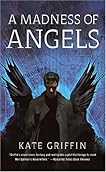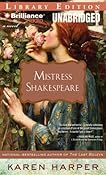November 1 kicks off National Novel Writing Month, abbreviated NaNoWriMo or just NaNo to those familiar with it. It's a challenge to write 50,000 words on an original work during the month of November. At a steady pace, that's 1667 words per day (or about 2000 if you want to build in some days off), every single day for 30 days. For reference, this blog post is 382 words. I would need to write the equivalent of four and a half of these every day just to keep up.
I last participated in NaNoWriMo in 2009, when I decided to take a break from my then-current projects to write something completely different. I wrote up a novel-length erotica, which topped out at over 80,000 words as of the 20th, so I started a spinoff. I call that my year of the double NaNo, because I wrote over 100,000 words in November of 2009.
The following year, I was working on the third set of edits for my trilogy, and I didn't want to interrupt the edits to do something different. This year, I have to finish up my fourth set of edits and get to working on book 2. I may show up at a write-in, because I do like the sense of community that comes with NaNoWriMo. But, I will not be pushing myself to write all those words. I know I can do it. I'm more than willing to cheer on others. I just have other things going on with my writing.
As you may be able to glean from my post, I'm a big proponent of NaNoWriMo and the community it builds. I would never have met the wonderful people in my writing group, if not for NaNoWriMo 2008. It was my first year in the Capital Region, and I was eager to meet new people and make friends based on common interests. I found a number of valuable friends among the Wrimos (what participants call themselves), and my fondest early memories of living in the Capital Region are of hanging out in a coffee shop with a laptop, procrastinating from writing with other writers.
I've often remarked that writing is a solitary activity. NaNoWriMo, if nothing else, is an excellent way to be less alone as a writer.






